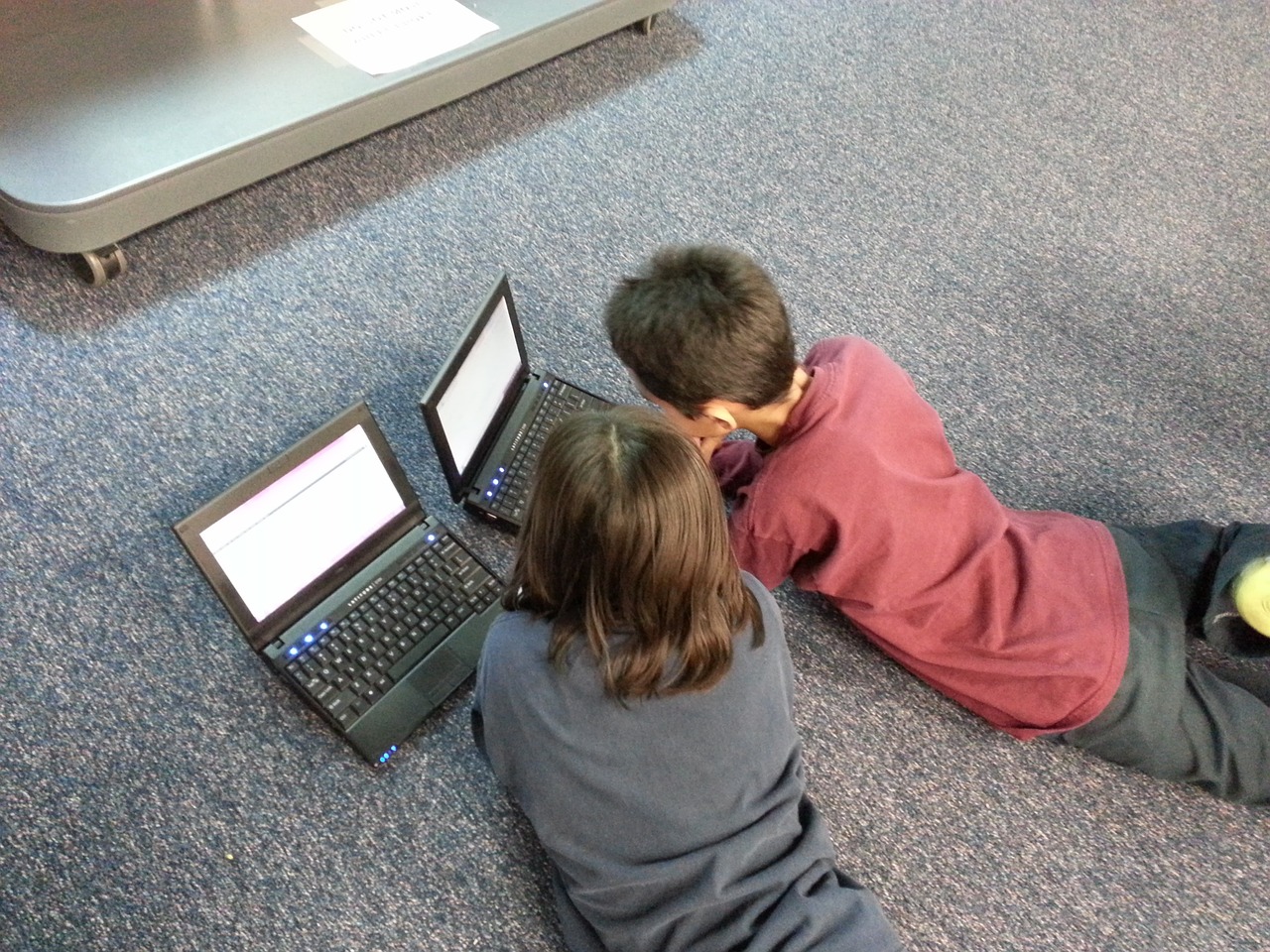Top 10 Tips for Choosing a Laptop for Children
Choosing the right laptop for children is a critical decision for parents and guardians. With the increasing reliance on technology for education and entertainment, a suitable laptop can significantly enhance a child’s learning experience while ensuring their safety online. This guide covers everything you need to know about finding the best laptops for children, including key features, top recommendations, and tips for balancing educational and recreational use.
Table of Contents
Why Choosing the Right Laptop Matters
In today’s digital age, laptops have become essential tools for children. They are used not only for playing games and watching videos but also for educational purposes such as online classes, research, and creative projects. The right laptop can support a child’s educational journey, provide safe entertainment, and help develop essential tech skills.
Importance of Laptops in Children’s Education
- Access to Educational Resources: Laptops provide access to a wealth of online educational resources, including e-books, educational games, and interactive learning platforms.
- Skill Development: Using a laptop helps children develop important skills such as typing, research, and digital literacy.
- Support for Online Learning: With the rise of online classes and virtual learning, having a reliable laptop ensures children can participate effectively.
Safety and Durability Considerations
- Online Safety: Laptops with robust parental controls can help ensure children access age-appropriate content.
- Durability: Children’s laptops need to withstand rough handling. Features like spill-resistant keyboards and rugged designs are essential.
Best Laptops for Children
Here are some of the best laptops for children available in 2024, catering to different needs and budgets.
Also Read: Ways Marketing Has Changed From 1950 to Today
Lenovo Chromebook Duet
- Specifications: MediaTek Helio P60T, 4GB RAM, 64GB SSD, 10.1-inch Full HD display
- Pros: Affordable, lightweight, detachable keyboard, long battery life
- Cons: Limited performance for demanding tasks
- Age Recommendation: Suitable for young learners (ages 6-10)
ASUS VivoBook 15
- Specifications: Intel Core i3, 8GB RAM, 128GB SSD, 15.6-inch Full HD display
- Pros: Affordable, decent performance, slim design
- Cons: Average battery life
- Age Recommendation: Suitable for middle school students (ages 11-14)
Apple MacBook Air (M1, 2020)
- Specifications: Apple M1 chip, 8GB RAM, 256GB SSD, 13.3-inch Retina display
- Pros: Excellent performance, long battery life, high-resolution display
- Cons: Expensive
- Age Recommendation: Suitable for older students (ages 15+)
Microsoft Surface Go 3
- Specifications: Intel Pentium Gold, 4GB RAM, 64GB SSD, 10.5-inch PixelSense display
- Pros: Versatile (tablet mode), lightweight, good build quality
- Cons: Limited performance for heavy tasks
- Age Recommendation: Suitable for young learners (ages 6-10)
Dell Inspiron 14 5000
- Specifications: Intel Core i5, 8GB RAM, 256GB SSD, 14-inch Full HD display
- Pros: Solid performance, good battery life, durable build
- Cons: Slightly heavier
- Age Recommendation: Suitable for middle to high school students (ages 11-18)
Top 10 Tips for Choosing a Laptop for Children
In today’s digital age, laptops are becoming increasingly essential for children. As a parent, it’s crucial to find the right laptop for your child that will meet their needs and keep them engaged with their studies. But with so many options available on the market, it can be overwhelming to choose the perfect one. In this article, we will guide you through the essential factors to consider when choosing a laptop for your child.
- Age Appropriateness: Age appropriateness is an important factor to consider when choosing a laptop for your child. Younger children will require a laptop that is easy to use, with a simplified operating system, and large icons. On the other hand, older children will need a laptop that has more advanced features, such as higher processing speeds, more memory, and the ability to handle complex software.
- Durability and Portability: Durability and portability are essential considerations when selecting a laptop for children. Children can be rough with their devices, so it’s vital to choose a laptop that can withstand wear and tear. Look for laptops with sturdy construction and reinforced corners. Additionally, portability is crucial if your child needs to carry their laptop around frequently. Look for lightweight laptops with long battery life to ensure convenience and ease of use.
- Screen Size and Resolution: Screen size and resolution are important factors to consider when selecting a laptop for children. A large screen size can enhance their viewing experience, but it can also make the laptop bulky and challenging to carry. On the other hand, a smaller screen size can make the laptop more portable but may not provide a satisfactory viewing experience. It’s best to choose a laptop with a screen size between 11 to 14 inches, with a resolution of at least 1366 x 768.
- Storage and Memory: Storage and memory are critical factors when selecting a laptop for children. If your child needs to store large files, such as videos or images, then a laptop with more storage is essential. Look for laptops with at least 128GB of storage. Memory is also essential if your child needs to multitask or run multiple applications simultaneously. Look for laptops with at least 4GB of RAM.
- Keyboard and Touchpad: The keyboard and touchpad are essential parts of a laptop that affect the overall user experience. Choose a laptop with a comfortable keyboard that is easy to type on, with enough space between the keys. Additionally, a good touchpad is essential for accurate cursor control, so choose a laptop with a responsive touchpad.
- Price: Price is an important factor to consider when selecting a laptop for children. The cost of laptops can vary significantly, so it’s essential to choose a laptop that fits within your budget. It’s also important to remember that the most expensive laptop is not always the best choice. Look for laptops with the features that meet your child’s needs and fit within your budget.
- Operating System: The operating system is another essential factor to consider when choosing a laptop for your child. There are three main operating systems available: Windows, macOS, and Chrome OS. Windows is the most common operating system, offering a broad range of features and software. macOS is used primarily by Apple users and offers a seamless user experience. Chrome OS is designed for web-based activities and is ideal for children who need to browse the internet and use web-based applications.
- Parental Control Features: Parental control features are essential when selecting a laptop for children. Look for laptops with built-in parental control features that allow you to monitor your child’s activity and limit their access to inappropriate content. You can also use third-party software to monitor your child’s activity and block specific
- Warranty and Customer Support: When selecting a laptop for your child, it’s essential to consider the warranty and customer support provided by the manufacturer. Choose a laptop with a warranty that covers defects and damage to the device. Additionally, good customer support is essential if your child experiences any issues with their laptop.
- Reviews and Recommendations: Finally, it’s a good idea to read reviews and recommendations from other parents and tech experts before making a purchase. Look for laptops with positive reviews, and consider the experiences of others before making a decision.
Affordable Laptops for Children
Not all parents can afford high-end laptops. Here are some budget-friendly options that still offer good performance and essential features.
Acer Chromebook Spin 311
- Specifications: MediaTek MT8183, 4GB RAM, 32GB eMMC, 11.6-inch HD touch display
- Pros: Affordable, versatile (convertible design), good battery life
- Cons: Limited storage
- Price Range: $250-$300
HP Stream 11
- Specifications: Intel Celeron N4000, 4GB RAM, 32GB eMMC, 11.6-inch HD display
- Pros: Very affordable, lightweight, decent performance for basic tasks
- Cons: Limited storage and performance
- Price Range: $200-$250
Lenovo IdeaPad 1
- Specifications: AMD A6, 4GB RAM, 64GB eMMC, 14-inch HD display
- Pros: Affordable, good build quality, decent performance
- Cons: Low storage capacity
- Price Range: $250-$300
Top Features to Look for in Laptops for Children
When choosing a laptop for a child, consider the following features to ensure it meets their needs and withstands everyday use.
Durability and Build Quality
- Rugged Design: Look for laptops with sturdy construction, reinforced corners, and spill-resistant keyboards.
- Portability: Lightweight and compact laptops are easier for children to carry around.
Parental Controls and Safety Features
- Content Filters: Ensure the laptop has built-in parental controls to filter inappropriate content.
- Usage Monitoring: Some laptops offer software that allows parents to monitor and control screen time.
Battery Life- Long Battery Life: Choose a laptop with a long battery life to support extended use for schoolwork and entertainment without frequent recharging.
Performance Specifications
- Processor and RAM: A decent processor (e.g., Intel Core i3 or AMD Ryzen 3) and at least 4GB of RAM are necessary for smooth performance.
- Storage: Look for laptops with SSDs for faster boot times and overall performance. A minimum of 64GB storage is recommended.
Display Quality and Eye Protection:
- High-Resolution Screen: A good quality display enhances the viewing experience for both educational content and entertainment.
- Eye Protection: Some laptops come with eye-care features to reduce blue light emission, protecting children’s eyes during prolonged use.
The Best Laptops examples for Children
Asus X454WA
The first is the Asus X454WA which is one of the most sought-after laptops by consumers. With a price of only Rp. 3.5 million is indeed very suitable for students to support their learning activities.
Specification:This laptop is powered by AMD APU E1-6010 Dual Core with a speed of 1.35 GHz, equipped with 2GB of RAM.
Also Read: VICTONY WIFI EXTENDER SETUP GUIDE
Asus X200MA-KX636D
This laptop uses an Intel Celeron N2840 processor which is the Bay Trail generation. By using this type of processor, ASUS promises a very long battery life, so it is perfect for students.
Specification:
⦁ Screen : 11.6 inch LCD, HD 1366 X 768 Pixels
⦁ Processor : Intel Celeron N2840
⦁ RAM : 2GB DDR3
⦁ Harddisk : 500GB
⦁ Price Rp. 2,889,000
Asus X201E-KX091D
This laptop also has quite qualified specifications. Apart from that, this laptop also uses a pretty good processor, namely the Intel Celeron B847 with Intel HD Graphics 4000.
Specifications:
- 11 inch screen
- 4GB DDR3 RAM
- 320GB SATA HDD
- Price Rp. 2,838,000
Educational Laptops: Enhancing Learning
Educational laptops come with features specifically designed to support learning and development.
Features That Support Educational Activities
- Pre-Installed Educational Software: Laptops like the Lenovo 100e Chromebook come with pre-installed educational apps.
- Stylus Support: Some laptops, like the Microsoft Surface Go, offer stylus support for note-taking and drawing.
- Interactive Learning Platforms: Chromebooks are great for accessing Google Classroom and other interactive learning platforms.
Reviews from Educators and Parents
- Positive Feedback: Many educators recommend Chromebooks for their ease of use and integration with educational tools.
- Parental Reviews: Parents appreciate the affordability and durability of models like the ASUS Chromebook Flip.
Recommendations for Educational Apps and Games
- Khan Academy: Offers a range of educational content for various age groups.
- ABCmouse: Provides interactive learning activities for younger children.
- Scratch: A programming language for children to create their own games and animations.
Durability and Safety Considerations
Children’s laptops need to be durable and safe to ensure longevity and protection against mishaps.
Rugged and Spill-Resistant Designs:
- Rugged Laptops: Models like the Dell Latitude 3190 are designed to withstand drops and rough handling.
- Spill-Resistant Keyboards: Laptops such as the HP ProBook x360 feature spill-resistant keyboards to protect against accidental spills.
Safety Certifications and Ratings – Certifications: Look for laptops with certifications such as MIL-STD-810G for durability and TCO Certified for environmental and social responsibility.
Balancing Entertainment and Education
Finding the right balance between educational and recreational use is key to ensuring that children benefit from their laptops.
Built-in Parental Controls:
- Screen Time Management: Laptops with built-in parental controls allow parents to set screen time limits.
- Content Restrictions: Parents can restrict access to certain websites and apps to ensure safe browsing.
Pre-Installed Games and Apps
- Educational Games: Many laptops come with pre-installed educational games that make learning fun.
- Recreational Apps: While entertainment is important, it’s crucial to choose laptops that offer a balance of educational and recreational apps.
FAQs on laptop for children
What is the best age-appropriate laptop for children? There isn’t a one-size-fits-all answer to this question as it depends on the child’s needs and level of technical expertise. However, laptops with simplified operating systems and large icons are suitable for younger children, while older children require laptops with more advanced features.
Can I buy a refurbished laptop for my child? Yes, refurbished laptops can be a good option for children. Just make sure the device has been thoroughly tested and comes with a warranty.
Should I choose a Windows, macOS, or Chrome OS laptop for my child? The choice of operating system depends on the child’s needs and the activities they will be using the laptop for. Windows is the most versatile, macOS is user-friendly, and Chrome OS is web-based.
How can I ensure my child’s laptop is safe for internet browsing? Choose a laptop with built-in parental control features or use third-party software to monitor your child’s activity and block specific websites.
What is the best price range for a children’s laptop? The price range for children’s laptops varies depending on the features and brand. Look for laptops that meet your child’s needs and fit within your budget.
Conclusion
In conclusion, selecting a laptop for children can be a daunting task, but considering these essential factors can make the process more manageable. Remember to consider age appropriateness, durability, screen size and resolution, storage and memory, keyboard and touchpad, price, operating system, parental control features, warranty, and customer support when choosing a laptop for your child.
Also Read: Top ways to boost Instagram Reels Likes
Choosing the right laptop for children is a significant decision that can impact their educational and recreational activities. By considering factors such as durability, performance, safety features, and affordability, parents can find a laptop that meets their child’s needs and supports their development. The recommended laptops in this guide provide a good starting point for making an informed choice.
Encourage readers to explore the listed options, read user reviews, and consider their child’s specific needs before making a purchase. Investing in the right laptop can enhance a child’s learning experience and provide safe and enjoyable entertainment.




